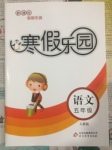题目内容
When you first meet a disabled person, what is your first reaction? Curiosity? Sympathy? If you experience any of these emotions, you are not alone.Chances are that you don’t regularly associate with someone who is disabled.Here are four points to keep in mind if you should happen to meet a disabled person.
Disabled people can lead active lives
With few exceptions, a disability does not prevent someone from working, raising a family, or taking part in social activities.Many sports and recreation programs have been adapted to a person with a disability.Instead of concentrating on the disability, look at the person the same way you would any normal person.
It’s all right to ask questions
Many people are afraid of offending someone by asking about their disability.When meeting them for the first time, it’s natural to be curious about who he or she is, and where they’re from.Asking questions is usually acceptable, as long as you use common sense.Don’t, for example, ask a blind person how he feeds and bathes himself.
Offer help when necessary
You see a woman in a wheelchair having trouble entering a building.It’s usually appropriate to lend a hand if someone is having obvious difficulty, but keep in mind that not everyone will be willing to accept your help.Unless the woman in the wheelchair is in danger, you do your part.
Remember that we all have obstacles to overcome
No matter who we are, each of us has a weakness or challenge to face.Like you, a disabled person would much rather be accepted for who they are, rather than be pitied.Many friends have said to me, “I often forget that you are blind.” To me, that is the top compliment(赞扬).
1.Why are you curious when you first see disabled people?
A.They can’t live normally. B.You seldom deal with them.
C.You look down upon them. D.They look quite different.
2.What should you do if you find a disabled person can manage it?
A.You had better lend him or her a hand.
B.You pretend that you haven’t seen him or her.
C.You should encourage him or her to try.
D.You had better let him or her alone.
3.From this passage we learn that ____.
A.the author is blind himself
B.a disabled person needs pitying
C.not everyone has a weakness
D.some people have no difficulty
小题1:B
小题2:D
小题3:A
略

练习册系列答案
 寒假乐园北京教育出版社系列答案
寒假乐园北京教育出版社系列答案
相关题目
 barrassed” about the website - and their father. Suman, who turns 13 tomorrow, said: “It's interesting because when I look at the baby photos I don't recognize myself - but I'm not planning on letting Dad do this for ever.” Mr. Bansal has said he will continue until they are old enough to leave home. “As they get older, Sunam and Jay have become quite embarrassed about what I'm doing,” he said. “But I hope that one day both of them will appreciate what I’ve done, and look back on their childhoods with happy memories.”
barrassed” about the website - and their father. Suman, who turns 13 tomorrow, said: “It's interesting because when I look at the baby photos I don't recognize myself - but I'm not planning on letting Dad do this for ever.” Mr. Bansal has said he will continue until they are old enough to leave home. “As they get older, Sunam and Jay have become quite embarrassed about what I'm doing,” he said. “But I hope that one day both of them will appreciate what I’ve done, and look back on their childhoods with happy memories.”